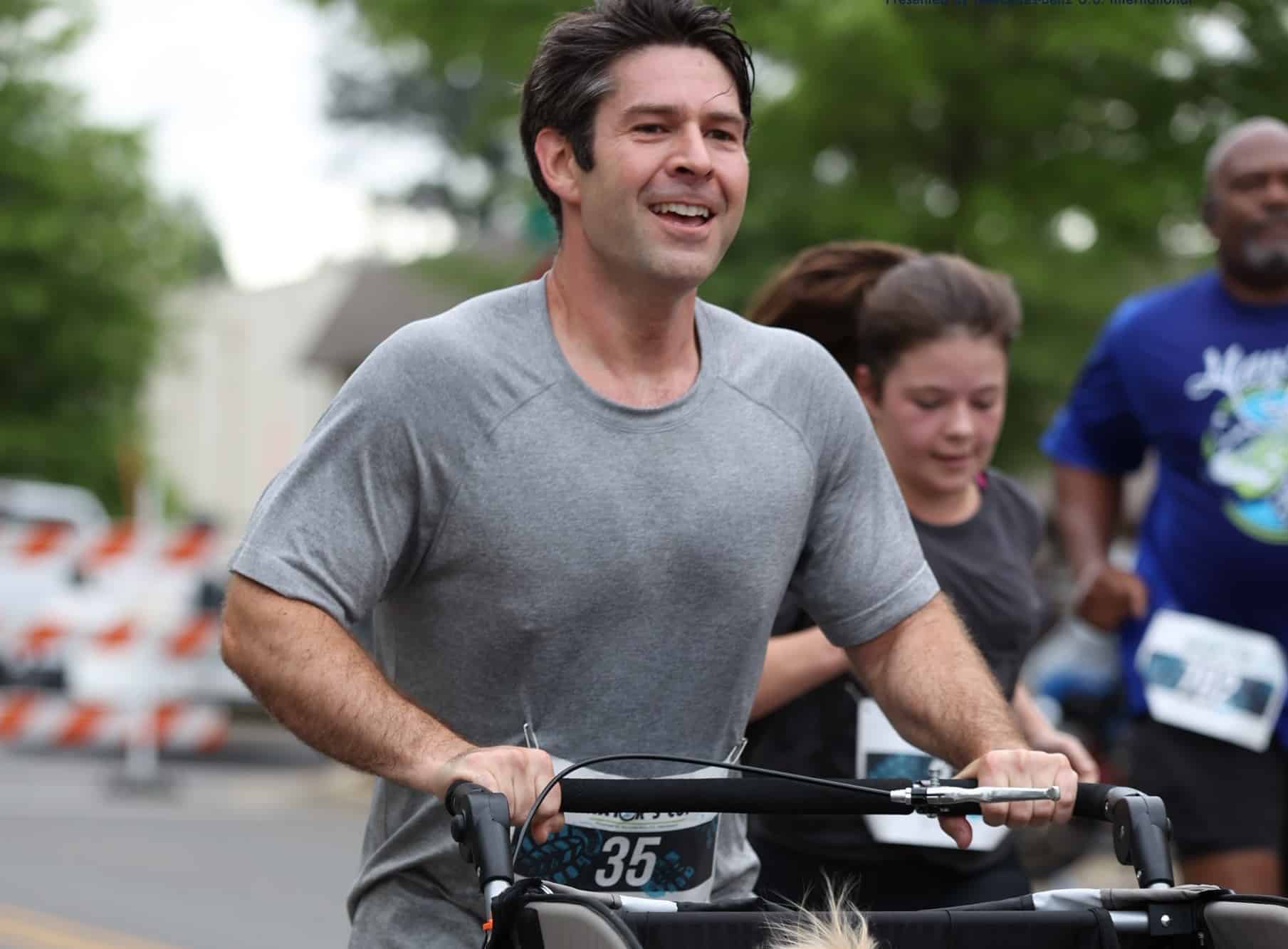Questions to Ask a Running Coach (Before and After You Hire Them)
Selecting a running coach can substantially elevate your training, but it’s crucial to find the right fit for your running goals and communication preferences.
As a UESCA certified running coach with experience, I recommend considering a coach’s qualifications, communication style, and approach to program customization. These elements are fundamental to fostering a productive coach-athlete partnership.
Before committing to a coaching relationship, initiate a discussion about the coach’s background and coaching philosophy. Inquire about their certifications, experience, and personal running history to ensure they have the necessary expertise. Understanding their perspective on training can also give you insight into whether their methodology aligns with your needs.
Communication is the cornerstone of an effective coaching experience. It is important to clarify how often you will interact with your coach and through what means, whether it’s email, phone calls, or in-person meetings. This ensures your training plan remains dynamic and adjusts to your life’s demands, helping you progress toward your personal best.
Check On The Coach’s Background and Experience
When looking for a running coach, it’s important to consider their background and experience to ensure they have the skills and knowledge to help you meet your goals.
Qualifications and Certifications
Ask about their certifications and why they chose the specific organizations to certify with. For instance, “What certifications do you hold, and how do they inform your coaching?”
As a UESCA certified running coach, I would explain that my UESCA certification has provided me with a comprehensive understanding of exercise science, training methodologies, and the latest research in running performance and injury prevention.
This certification ensures I have a solid foundation to design effective, science-backed training programs.
- Other Certifications: United Endurance Sports Coaching Academy (UESCA), Road Runners Club of America (RRCA), ISSA Certified Running Coach, USATF Coaching Certification
- Education: Formal education in exercise science or physiology
- Continuous Learning: Participation in relevant workshops and courses to stay updated
Coaching Philosophy
Inquire about their coaching philosophy to see if it aligns with what you’re looking for. You might ask, “Can you describe your coaching philosophy and how it shapes the way you work with runners?”
Personally, I believe in a holistic, athlete-centered approach that considers not just your physical training, but also nutrition, recovery, and mental strategies. My goal is to empower you to reach your potential while fostering a love for running and a healthy, balanced lifestyle.
- Individual Tailoring: Plans are not one-size-fits-all but are crafted after careful assessment of a runner’s strengths and areas for improvement.
- Holistic Approach: Considering not just the physical but also mental and emotional readiness.
Experience with Different Levels of Runners
Understanding a coach’s experience with runners at different levels can give you an idea of their versatility and adaptability. Consider asking, “What experience do you have coaching runners at my level, and how do you adapt your coaching to different experience levels?”
Personally, I have experience coaching beginners who are just starting out, all the way up to seasoned marathoners aiming for personal bests. I tailor my coaching to your unique level, utilizing my experience to meet you where you are and help you progress.
- Beginners: Focusing on building a strong foundation and fostering a love for running.
- Intermediate to Advanced: Refining techniques and pushing boundaries to reach personal bests.
By scrutinizing a coach’s qualifications, philosophy, and experience, you’re able to gauge their suitability to your journey as a runner.
Assessing The Coach’s Approach To Training

When selecting a running coach, understanding their training philosophy is critical to ensure it aligns with your goals and needs. My approach prioritizes a tailored training plan, clear communication, and injury prevention to support your running journey.
Personalization of Training Plans
It’s essential to find out how the coach designs their training plans. Ask, “How do you personalize training plans, and what information do you use to tailor them to individual needs?”
I gather detailed information about your running history, goals, lifestyle, and any other pertinent factors. This allows me to create a training plan that is not only targeted towards your goals but also fits into your life.
Key components I adjust in a personalized plan include:
- Volume and Intensity: Tailored to your current fitness level and progression.
- Weekly Mileage: Based on your current training routine.
- Specific Workouts: Including easy runs, long runs, intervals, tempo runs, and recovery runs to balance improvement with recovery.
Communication and Feedback
The coach’s communication style and the feedback they provide can greatly influence your experience. You might ask, “What methods of communication do you use, and how often can I expect to receive feedback?”
I prioritize clear and consistent communication, using email, phone calls, or video chats. I provide weekly feedback on your workouts and am available to answer any questions you have along the way.
Here’s how I ensure this:
- Regular Check-Ins: I schedule weekly calls or in-person sessions for updates.
- Accessibility: I am available for questions and support via email or messaging.
- Feedback Loop: Constructive feedback on your training sessions to foster improvement and accountability.
Injury Prevention and Management
Injury prevention is a crucial part of training. A good question to ask would be, “What is your approach to injury prevention and how do you address it in your training plans?”
While I’m not a medical professional, my UESCA certification has equipped me with strategies to minimize injury risk through proper training load management, strength exercises, and technique improvements.
Should an injury arise, I advise consulting with a healthcare provider, and I am prepared to adjust your training to accommodate recovery and rehabilitation recommendations.
My approach to injury prevention and management includes:
- Preventive Strategies: Strength training and flexibility exercises to reduce the risk of injuries.
- Proactive Management: Swift action on any sign of injury to mitigate further health issues.
Remember, finding the right coach means ensuring they understand and can adapt to your specific training needs.
Logistical Considerations
Exploring a running coach’s availability, cost, and methods for tracking progress will ensure a partnership that fits your schedule, budget, and running goals.
Availability and Scheduling
One of the first questions to consider is, “What is your availability, and how does scheduling work with your coaching?” As a coach, I understand that your time is valuable.
My coaching is designed to be flexible, offering various communication methods and scheduling options to fit your busy lifestyle. I am available for consultations and check-ins at times that are convenient for you, ensuring that your training fits seamlessly into your life.
- Initial Consultation: Usually set within a week of contact.
- Regular Check-ins: Weekly check-ins and monthly discussions.
- Adjustments: I’m responsive to the need for changes in the schedule due to life events.
Coaching Packages and Pricing
Cost is an important factor for any service. You should ask, “What are your coaching packages and pricing structures?”
Whether you’re looking for a one-time consultation or an ongoing coaching relationship, I have options that provide value and meet your financial considerations without compromising the quality of your training.
For a look at my specific coaching packages and pricing check out my online virtual running coaching options.
Success Metrics and Progress Tracking
It’s also important to know how progress will be measured. “How do you track and measure a runner’s progress?”
I use a combination of qualitative feedback from you and quantitative data from your workouts, which may include pace, heart rate, and perceived effort. Regular assessments and check-ins help us see where you’re improving and where we can adjust your training to keep you moving forward.
- Weekly Metrics: To assess short-term performance and make quick adjustments.
- Goal Checkpoints: Evaluate progress towards your running goals at predetermined intervals.
- Race Goal Alignment: Ensure training aligns with your target race performance.
Additional Support and Resources
Aside from running techniques and physical training, a comprehensive coaching approach also encompasses nutrition, mental health, and supportive communities. These areas can significantly impact a runner’s performance and overall well-being.
Nutritional Guidance
Nutrition plays a key role in your performance and recovery. “Do you provide nutritional guidance as part of your coaching?”
While I am not a registered dietitian, I can offer general advice on nutrition for runners and, if needed, refer you to a professional for more detailed plans. My aim is to ensure you’re well-fueled for your training and races.
Mental Conditioning
Mental toughness can be as important as physical training. “What is your approach to mental training and race preparation?”
I incorporate mental conditioning into your training by providing strategies for building mental resilience, such as setting achievable goals, visualization techniques, and developing positive self-talk to keep you confident and focused, especially as you approach race day.
- Goal Setting: Working with runners to set achievable, clear, and measurable goals for motivation and progress tracking.
- Stress Management: Teaching techniques like visualization and positive self-talk to manage race-day nerves and improve concentration.
Community and Additional Support
The support of a running community can be invaluable. “Do you offer access to a running community or additional support systems?” I encourage my runners to engage with the broader running community through online forums, local running groups, and events.
- Running Clubs: Encouraging participation in local running clubs for camaraderie and consistent training routines.
- Training Groups: Organizing group runs or workouts, where runners with similar goals can support and push each other.
By integrating these components into my coaching, I help runners not only achieve their physical goals but also maintain a healthy lifestyle and develop a resilient mindset.
Call To Action
If you’re considering hiring a personal coach, take initiative to ensure a good fit. Start by reaching out to your local running store for referrals, or ask fellow runners for recommendations.
It’s valuable to seek coaches who come with strong testimonials and references.
Of course, you are welcome to hire me, as well!
Check out my packages and pricing here.
You can also email me or call me anytime to ask these questions and more!
Contact Methods:
- Email: Draft a list of preliminary questions and send them via email. This step can help streamline your concerns and determine their responsiveness.
- Phone Call: Arrange a call or an in-person consultation to discuss their coaching style, philosophy, and to gauge how personal their coaching services are.
Essential Questions to Ask:
- What is your experience and coaching philosophy?
- How do you tailor training plans for individual needs?
- Can you provide examples of success from your previous athletes?
- What level of communication can I expect from you? Is it through calls, emails, or both?
- How do you handle schedule changes or unforeseen circumstances, like the need to cancel a session?
When initiating contact, be direct with your questions and clear about your own running goals and expectations. This will not only show that you’re serious about your running journey but also allows the coach to provide tailored responses that can guide your decision-making process.
Remember, the right coach should prioritize a two-way street of communication, demonstrate adaptability, and be someone you can trust with your running ambitions.



